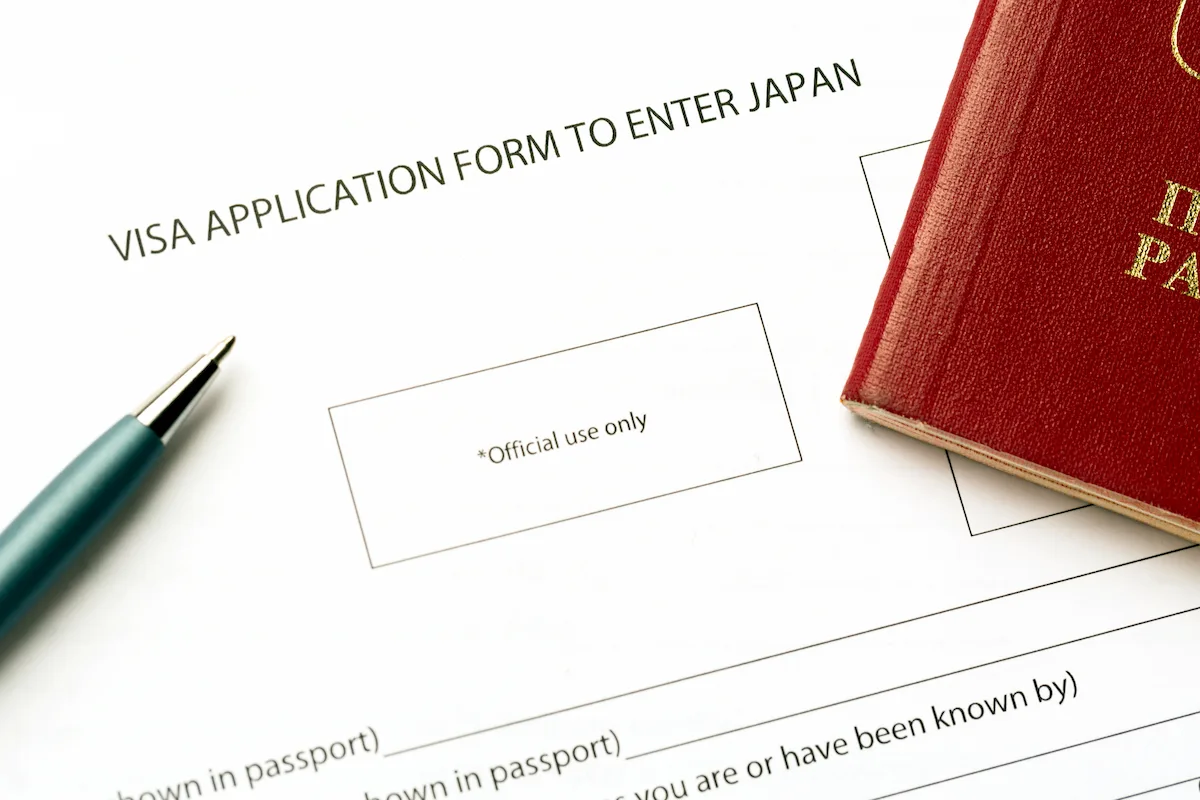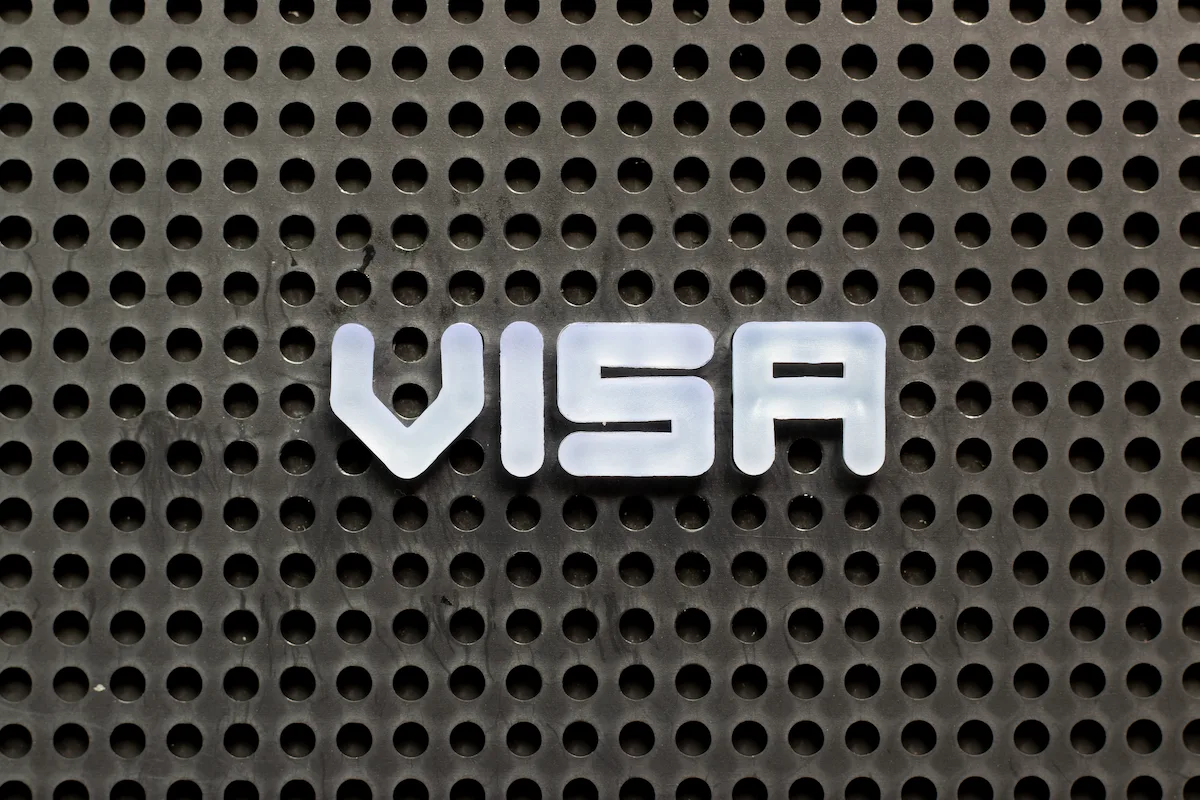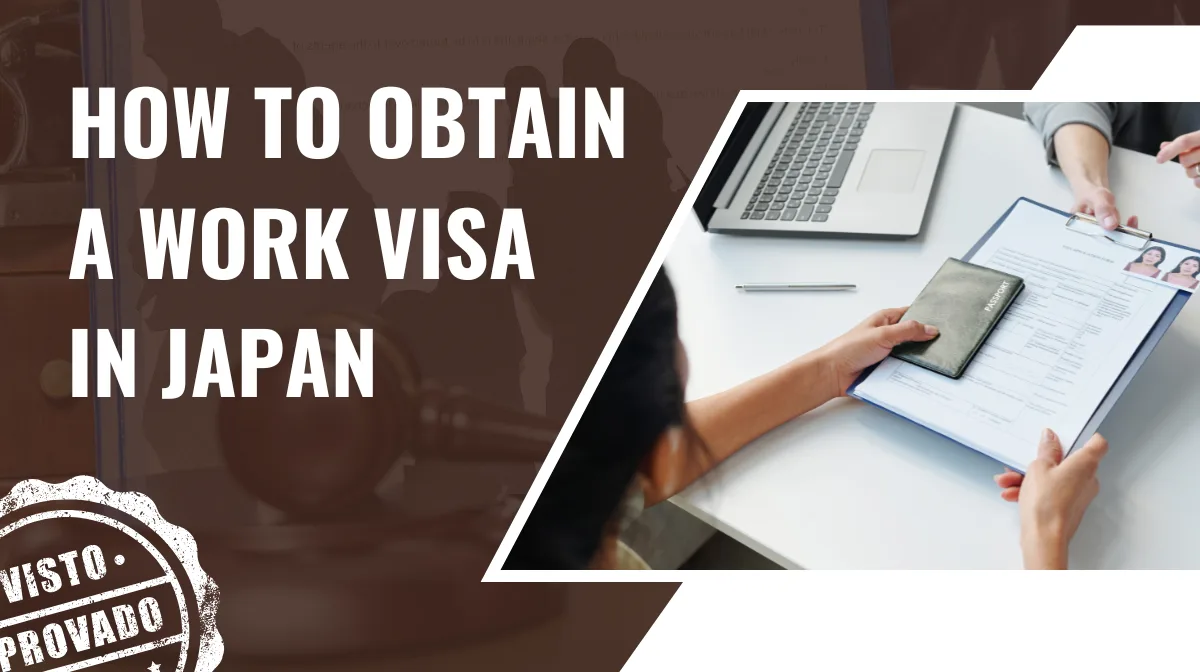Obtaining a work visa is an essential and unavoidable step for IT engineers aiming to work in Japan.
The “Engineer/Specialist in Humanities/International Services” residence status is the primary work visa that many IT engineers seek to obtain.
This article provides a comprehensive explanation of everything from application to post-acquisition considerations, focusing on information that is truly necessary in practice.
- Visa application process for IT engineers
- Required documents and qualifications
- Post-approval considerations
1. Basic Knowledge of Japanese Work Visas

For IT engineers aiming to work in Japan, obtaining a work visa is an essential and unavoidable step.
In particular, the “Engineer/Specialist in Humanities/International Services” residence status is the primary work visa that many IT engineers aim to obtain.
This article will provide a comprehensive explanation of everything from application to post-acquisition considerations, focusing on information that is truly necessary in practice.
Understanding Work Visas and Residence Status
This section explains the formal definition of what is commonly called a “work visa.” In practice, this term refers to a “residence status that permits employment.”
Residence Status
A qualification that permits stay in Japan and specific activities
Visa
A permit necessary for entry into the country
While these two are closely related, they each have different roles. Residence status is an important qualification that defines the content and period of activities in Japan. After obtaining it, employment within the defined range of activities is permitted.
From entry to the start of employment, you first obtain a visa, receive a residence card upon entry, and then can engage in activities based on your residence status.
Reference: Immigration Services Agency: Finding by Residence Status
Types of Work Visas Relevant to IT Engineers
Among the work visas available to IT engineers, the most common is the “Engineer/Specialist in Humanities/International Services” residence status.
This status allows engagement in specialized work such as system development, programming, and infrastructure construction, with a maximum stay period of 5 years.
For those working at a Japanese branch of a foreign company, the “Intra-company Transferee” residence status applies, targeting those with at least one year of practical experience.
For engineers with more advanced specialization, there is also the “Highly Skilled Professional” residence status, which evaluates candidates using a points system based on IT skills, education, and annual income, offering preferential treatment that allows more flexible activities.
2. Details of the Engineer/Specialist in Humanities/International Services Visa

This section provides a detailed explanation of the Engineer/Specialist in Humanities/International Services residence status, which is most relevant to IT engineers, covering everything from acquisition requirements to practical considerations.
This status permits employment leveraging specialized knowledge and skills, and is the goal for many IT engineers.
Reference: Immigration Services Agency: “Engineer/Specialist in Humanities/International Services”
Required Educational and Work Experience Conditions
To obtain the Engineer/Specialist in Humanities/International Services residence status, you must meet either educational or work experience requirements.
Educational Requirements
You must have graduated from a Japanese university with an IT-related major/department, or obtained an IT-related degree such as computer science from a foreign university. You can also meet the requirements by completing an IT-related course at a Japanese or foreign technical college for 2 or more years.
Work Experience Requirements
Even if you don’t meet the educational requirements, you can qualify through the work experience requirement if you have more than 10 years of practical experience in IT-related work.
This practical experience must include specific job experience such as programming, system development, infrastructure construction, etc.
Permitted Work Scope and Restrictions
Work permitted under the Engineer/Specialist in Humanities/International Services residence status is limited to jobs requiring specialized technical knowledge.
Specific permitted work content
- Software development and design
- System architecture design
- Database design and management
- Network construction and operation
- AI/machine learning research and development
- Project management
On the other hand, simple clerical work, data entry, basic helpdesk duties, basic PC setup tasks, and other routine tasks that don’t require specialized knowledge are not permitted.
If your work content exceeds the scope of your residence status, it may lead to revocation of your status, so caution is necessary.
Period of Stay and Renewal Procedures
| Period of Stay | Renewal Period | Number of Renewals |
|---|---|---|
| 5 years, 3 years, 1 year, 3 months | Application possible from 3 months before expiration | No limit |
The Engineer/Specialist in Humanities/International Services residence status offers staged periods of stay, from a maximum of 5 years to a minimum of 3 months.
Specifically, there are 4 stages: 5 years, 3 years, 1 year, and 3 months. Renewal applications can be submitted from 3 months before the expiration date, and there is no limit to the number of renewals.
However, continuous employment records and tax payment history are important subjects of review during renewal.
Also, if you have not been engaged in your duties for more than 3 months, your residence status may be revoked, so caution is necessary.
When changing jobs, you must notify the Regional Immigration Services Bureau in advance, and if you engage in activities outside your qualification, such as side jobs, you need to obtain separate permission.
■日本でエンジニアとしてキャリアアップしたい方へ
海外エンジニア転職支援サービス『 Bloomtech Career 』にご相談ください。「英語OK」「ビザサポートあり」「高年収企業」など、外国人エンジニア向けの求人を多数掲載。専任のキャリアアドバイザーが、あなたのスキル・希望に合った最適な日本企業をご紹介します。
▼簡単・無料!30秒で登録完了!まずはお気軽にご連絡ください!
Bloomtech Careerに無料相談してみる
3. Specific Procedures for Work Visa Application

The work visa application process is complex and requires many documents and procedures.
Here, we explain in detail the necessary steps and considerations for a smooth application. Understanding the flow from application to acquisition allows for thorough preparation.
Preparation of Required Documents and Considerations
For a work visa application, many documents are required from both the applicant and the employing company. Care must be taken to ensure there are no deficiencies at the time of application.
From the Applicant
- Original passport
- Regulation-sized ID photo
- Resume in designated format
- Degree certificate or graduation certificate
- Work history documentation (if applicable)
- Documents certifying Japanese language ability (JLPT certificates, etc.)
From the Employing Company
- Copy of employment contract
- Company registration certificate
- Documents detailing job content
- Salary payment certificate
- Company financial statements
- Business plan (for newly established companies)
Reference: Application for Certificate of Eligibility for Employment
Time Required from Application to Acquisition
Obtaining a work visa requires a certain amount of time. First, obtaining a Certificate of Eligibility typically takes 1-3 months. This may take even longer during the busy period of February-March.
If there are deficiencies in the documents, additional time may be required.
After obtaining the Certificate of Eligibility, getting the visa usually takes about 5 business days. This procedure must be done at a diplomatic mission abroad, and depending on the country, additional documents may be required.
Therefore, managing your schedule with ample time is important.
Detailed Application Costs
The costs associated with application are divided into mandatory costs and potential additional costs.
Mandatory Costs
- Certificate of Eligibility application: Free
- Visa application fee: Varies by country
- Residence card: Free
- Change of status of residence application fee: 4,000 yen
- Translation costs for various certificates: About 3,000 yen per page
- Document authentication fees: Varies by document
If you hire an administrative scrivener, fees of approximately 100,000 to 300,000 yen may apply.
These costs are principally borne by the applicant, but in the case of IT engineers, many companies cover these costs to secure talented personnel.
4. Common Problems and Countermeasures in Work Visa Applications

Various problems can arise during the work visa application process.
Here, we explain typical problems particularly related to IT engineers and their countermeasures. Understanding the points to note beforehand enables a smooth application process.
Cases Where Applications Are Denied
A major reason for denial of IT engineers’ work visa applications is insufficient specialization.
Cases with High Risk of Application Denial
- When job content primarily consists of tasks not requiring technical skills
- When there is low relevance between educational/work background and job content
- When the primary duties are not programming or system development, etc.
Problems on the Company Side
- When the salary level is low compared to Japanese nationals in the same position
- When the company’s financial condition is unstable
- When employment conditions are unclear or inappropriate, etc.
It’s important to identify such issues in advance and take appropriate measures.
Reference: Visa Application Service: What to Do If Your Visa Is Denied
Points to Note When Preparing Application Documents
Great care must be taken when preparing application documents. The following documents are crucial elements that can determine the success or failure of your application.
For resumes and work history documents, you need to specifically list IT skills and technical experience, clearly explaining project achievements and technologies used. It’s particularly important to clearly show the relevance between your education and duties.
For employment contract-related documents, you need to detail job content and clearly present salary and treatment. It’s also important to show that working conditions comply with laws and regulations.
Checklist for Smooth Application
For a smooth application, thorough preparation is required by both the applicant and the company.
Applicant’s Checklist
- Degree certificate and academic transcript
- Documents certifying practical experience
- Certificates proving technical skills
- Confirmation of passport validity
On the company side, confirmation is needed for documents proving business reality, appropriateness of employment conditions, reasonableness of salary level, status of social insurance enrollment, etc.
In the application process, it’s important to thoroughly check completeness of required documents, consistency of entered information, confirmation of submission deadlines, confirmation of any additional documents, etc.
■日本でエンジニアとしてキャリアアップしたい方へ
海外エンジニア転職支援サービス『 Bloomtech Career 』にご相談ください。「英語OK」「ビザサポートあり」「高年収企業」など、外国人エンジニア向けの求人を多数掲載。専任のキャリアアドバイザーが、あなたのスキル・希望に合った最適な日本企業をご紹介します。
▼簡単・無料!30秒で登録完了!まずはお気軽にご連絡ください!
Bloomtech Careerに無料相談してみる
5. Points to Note After Obtaining a Work Visa

Even after obtaining a work visa, there are various considerations for maintaining your residence status.
Here, we explain in detail the knowledge necessary to continue working within the scope of your residence status and points to be aware of.
Considerations for Working Within the Scope of Your Residence Status
After obtaining a work visa, you are required to work within the scope of job content approved at the time of application.
For IT engineers, specialized work such as system development and programming is permitted, but engaging solely in simple tasks or helpdesk duties is generally not permitted.
It’s also important to comply with the working conditions stated in your employment contract and to properly manage overtime hours. Violation of these conditions may lead to revocation of your residence status, so constant vigilance is necessary.
Procedures and Considerations When Changing Jobs
If you’re considering changing jobs, particularly careful attention is needed. Let’s check the process step by step.
- You may need to change your residence status or obtain a certificate of eligibility for employment before changing jobs
- Confirm that the job content at your new workplace is within the scope of your current residence status, and if necessary, apply for a change of residence status
When changing jobs, it’s important to prepare all necessary documents without omission, such as obtaining a certificate of separation from your previous workplace and preparing an employment contract for your new workplace.
Reference: Immigration Services Agency: Notification Regarding Affiliated Organizations
Important Points for Residence Period Renewal
When renewing your period of stay, your employment record to date and future employment plans are important subjects of review.
Renewal applications are possible from 3 months before the expiration date, and considering the preparation of necessary documents and the review period, early action is recommended.
Points Checked During Renewal
- Maintenance of appropriate salary level
- Enrollment in social insurance
- Proper filing of tax returns, etc.
Whether your activities during the period of stay were in line with the plan at the time of application is also an important criterion for judgment.
Reference: Application for Extension of Period of Stay
6. Succeeding as an IT Engineer in Japan with a Work Visa
While obtaining a work visa involves complex procedures, it’s not an insurmountable barrier if you don’t neglect preparation.
By keeping in mind the application points and considerations explained so far, smooth acquisition is possible.
IT engineers in particular are in high demand, and many companies offer support. Please use this article as a reference to steadily advance your preparations.

















